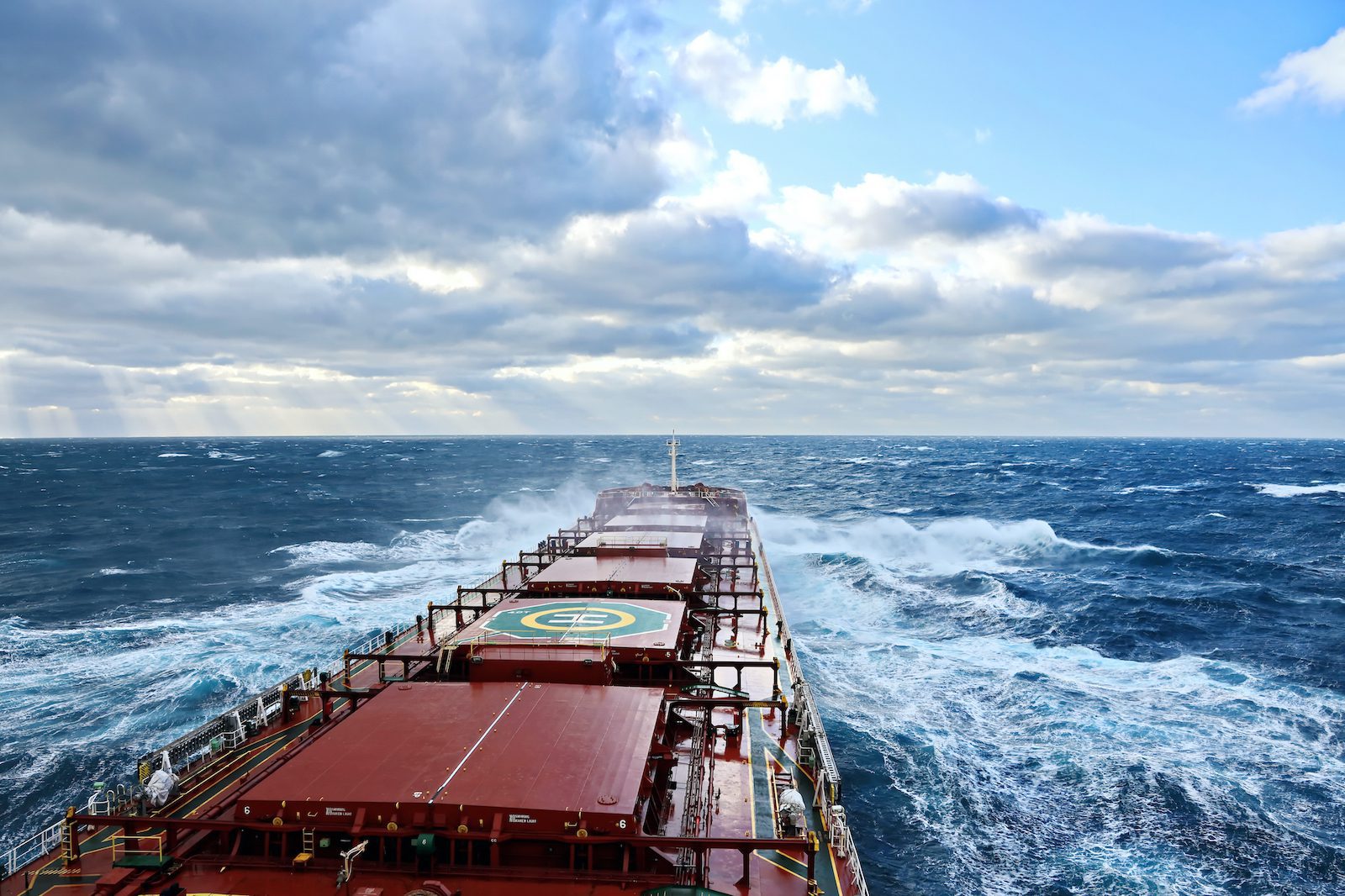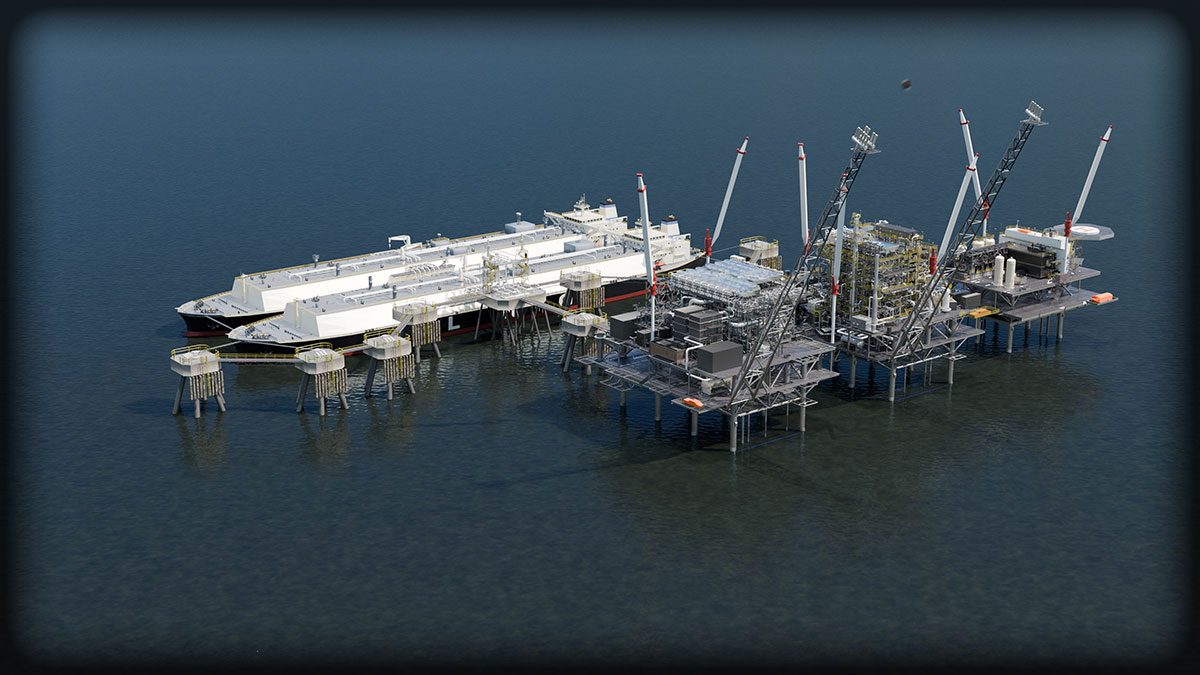Even though it has pulled back from its October highs, the drybulk market is still of keen interest, if the attendance at last week’s Marine Money conference is any indication. At the in-person event held in midtown New York, the audience remained in their seats for the late afternoon session, moderated by veteran ship finance lawyer Rob Lustrin from Reed Smith – the legal behemoth with a worldwide presence.
Mr. Lustrin, who heads up the New York-based capital markets team at the firm, observes that “the drybulk markets are strong based in large part by the demand for tonnage coming out of the Covid-19 pandemic, the current low level of newbuilding orders and increasing scrap values.”
The panel, composed of top executives from four public (share-listed) companies, went well beyond the ups and downs of the marketplace. Famously, Hamish Norton, the ex-investment banker who is now President of Star Bulk (with a fleet of 128 ships) said that “We are happy…” adding that company earnings are still ample, even after the market’s recent dip. In the just-concluded Q3, SBLK beat analysts’ estimates, recorded hefty earnings and providing investors with a whopping $1.25/share dividend (nearly double that paid out in the previous quarter). SBLK has also been buying back shares, and will likely continuing doing so.
Last week, drybulk was waning and waxing. UK-based Consortium Maritime Trading, said in their Nov. 22 market overview, “Despite bearish indications for Chinese steel output, the Cape sector rallied sharply.” They noted that hires making up the Capesize index: “started at $31,113/day, dropped to $25,603/day by midweek, and recovered to $29,338/day on Friday.” The Marine Conference was held on Thursday, with the market already turning upward.
What of the future? In a broader perspective, Mr. Norton said that lower debt levels [SBLK and peers have repaid debt] comport with less of a need for period coverage. Nevertheless, he hinted that SBLK might take some limited amounts of period charter cover. Though not discussed on this panel, in the present “backwardated” market, forward timecharter hires are lower than those in the spot timeframe. The panel did discuss likely movements of major bulk commodities, but much of the positive market dynamics stem from the supply side of the equation; panelist Tasos Aslidis, the CFO of Eurodry (“EDRY”) that the percentage of vessels on order (around 6% – 7% of the present fleet) has been “lower for longer” than any time previously. Ms. Aslidis, echoing sentiments from other Marine Money panels, pointed to the vast numbers of container vessels on order- providing a further restriction on drybulk capacity increases.
Importantly the favorable supply picture is closely linked with the present and future regulatory environment. Gary Vogel, from EGLE, opined that “Environmental regulations are a positive for drybulk.” Citing uncertainty on future emissions targeting, and future fuels to meet decarbonization objectives, he said that there will be much less ordering. Stamatis Tsantanis, the top man at Capesize specialist Seanergy (“SHIP”) said that likely speed reductions going forward (as vessels slow down to reduce emissions) will lead to a situation of increased costs where “…supply will be tested…”
Demand has shifted around. Mr. Vogel shed some light on the interactions of smaller bulk carriers with the container sector, where Handy bulkers are taking some cargoes that previously went in empty containers. Geopolitics also looms large; with the panelists noting that the ongoing spat between China and Australia has meant that coal imports must come from farther away.
Going forward, innovation is needed as the industry decarbonizes. Mr. Tsantanis emphasized SHIP’s collaboration with charterers who are committed to ESG objectives and have been willing to take vessels on longer term charters. EGLE’s Gary Vogel said that he was encouraged by collaborations going on, but that “first movers need to be incentivized.” SBLK’s Mr. Norton- never one to mince words, put it simply after noting the likely difficulties in meeting IMO targets [for emissions and carbon intensity], “…there need to be incentives (he mentioned a carbon tax)…that will enable someone to get rich…”
Rob Lustrin, from Reed Smith, told gCaptain: “The IMO de-carbonization regulations coming down the pike have spurred on the development of new vessel, engine and marine fuel technologies. I expect that owners around the world, to comply with these de-carbonization targets, will seek to retrofit or replace their current drybulk vessels in the coming years. Of course, this will require substantial capital expenditures, which should lead to a new spate of capital raising transactions.”
Another aspect of capital markets, that of mergers and acquisitions (referred to also as “industry consolidation”), bubbled though the drybulk discussion. There are advantages for bigger companies; in Mr. Norton’s view; “…the world is becoming a much more regulated place…” that requires expertise (that goes along with companies with scale) to handle regulatory requirements. When the market’s valuation has cooperated, SBLK has been at the forefront of “shares for ships” deals- using its equity as a “currency” for acquiring vessels.
Sign up for our newsletter

 Join The Club
Join The Club











